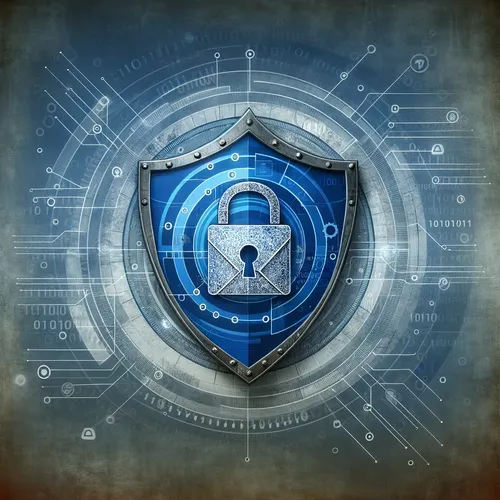
Knowledge base
January 18, 2024
Email security: DMARC and Authentication
In the digital age we live in, e-mail communication is an indispensable part of both personal and professional interactions. Unfortunately, with this dependence also comes an increased risk of cyber attacks. Email spoofing, phishing, and other email-based threats are commonplace. In this comprehensive article, we dive deeper into the world of email security, with a focus on email authentication and the crucial role of DMARC (Domain-based Message Authentication, Reporting & Conformance) alignment.
Main body:
Deeper Understanding of DMARC
DMARC is a protocol designed to protect organizations from misuse of their e-mail domains. This protocol uses SPF and DKIM to check the authenticity of e-mail messages. DMARC helps identify and prevent e-mail spoofing by providing clear instructions on how to deal with messages that do not meet authentication requirements.
The Importance of Email Authentication Techniques:
SPF and DKIM are two important techniques for e-mail authentication. SPF verifies the IP addresses allowed to send emails from a particular domain. DKIM, on the other hand, adds a digital signature to emails that assures that the content of the email has not been altered during transmission. These techniques are fundamental to establishing reliable e-mail communications.
The Critical Role of DMARC Alignment:
DMARC alignment ensures that an e-mail message that passes SPF and DKIM authentication actually matches the domain from which it claims to be sent. This reduces the likelihood of fraudulent emails reaching the recipient and increases overall email security.
Challenges and Best Practices in Implementing DMARC:
While there are significant security benefits to implementing DMARC, it can be a challenging process. It is crucial to start with a monitoring phase to understand current email flows and potential problems. In addition, it is advisable to gradually tighten the policy, from a “none” policy to “quarantine” and eventually “reject.
The Benefits of a Strong DMARC Policy:
An effective DMARC policy goes beyond security; it contributes to email domain reliability and increases the chances that legitimate emails will be successfully delivered. This is especially important for businesses that rely on email marketing and communication with customers.
Conclusion
Implementing DMARC alignment and email authentication is no longer optional, but an essential part of a robust cybersecurity strategy. Organizations that embrace these technologies not only protect their own data and communication channels, but also contribute to a safer Internet for all. The investment in time and resources to implement DMARC alignment pays off in the form of increased confidentiality, integrity and availability of email communications.
Want to know more?

Related
blogs
Tech Updates: Microsoft 365, Azure, Cybersecurity & AI – Wekelijks in je Mailbox.


